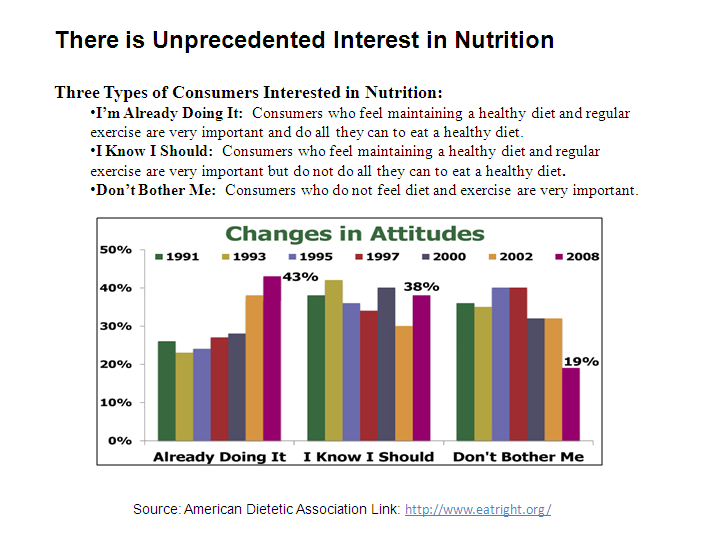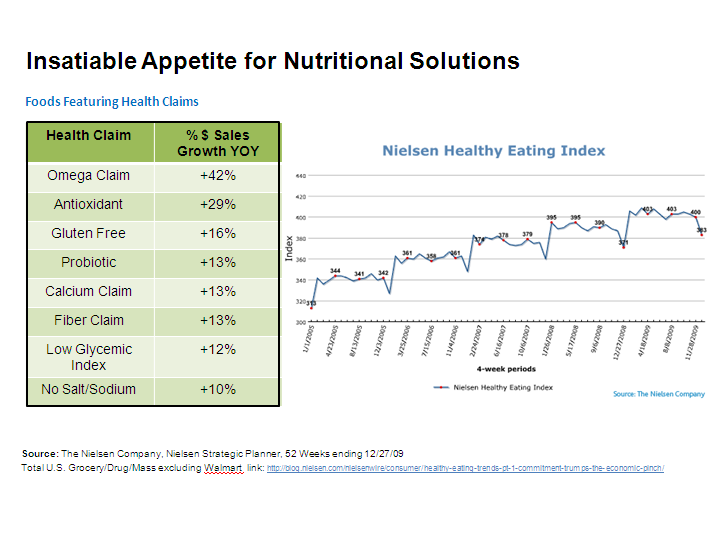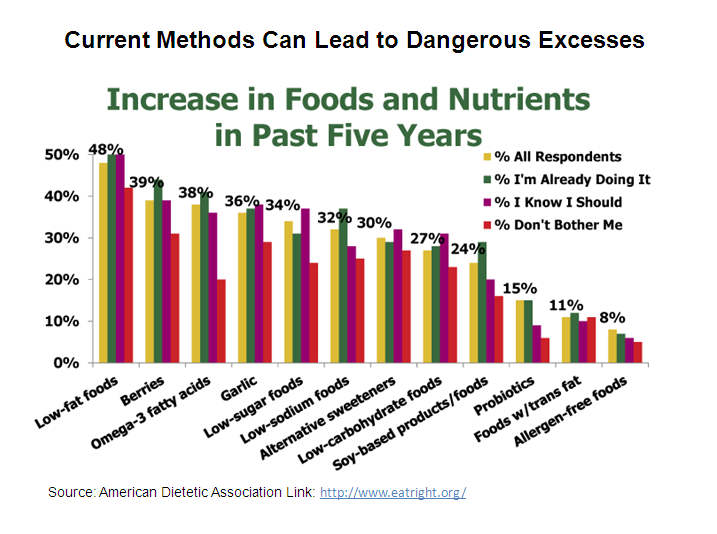Nutritional Complexity
Swinging the pendulum
It is clear that consumers are interested in incorporating good nutrition into their lives; but do not have the proper tools to do so. They were told to consume low-fat foods; the result is 48% increase in low fat foods in last five years. They were told to increase consumption of berries because berries are rich in antioxidants; the result is 39% increase in berries consumption in last five years. They were told to increase omega-3 consumption; the result is 38% increase in omega-3 consumption in last five years. But all this has the risk of swinging the pendulum in the other direction, giving rise to different kinds of diseases.
Nutritional imbalances can lead to diseases
Reducing lipids excessively can be harmful. Lipids including monounsaturated fatty acids, polyunsaturated fatty acids such as Omega -3 and -6, and saturated fatty acids have important functions in the body and are required in certain amounts for proper nutrition. However, the random consumption of oils or supplements does not provide optimal nutrition and can lead to imbalances. Oils contain other substances in addition to fatty acids, such as vitamin E, sterols and lignans, which can affect the activity of fatty acids. Oils can have remarkably different properties than suggested by their fatty acid content. Therefore, it is not sufficient to select on oil based solely on the amount of monounsaturated, omega-6, omega-3, or saturated fatty acids it contains.
Nutritional imbalances can lead to diseases and have been difficult to understand. There are many pieces to the puzzle (see Scientific Publications). However, now we understand these important facts very well:
- Lipids constitute 20-40% of calories but are associated with 80% of health problems and the related social burden.
- Essential fatty acids (omega-6 and omega-3) have critical functions in the body.
- All fatty acids compete in metabolism. For example, Omega-3 is preferentially metabolized, then Omega-6, and finally non-essential fatty acids.
- Although non-essential fatty acids are required in small amounts, they can interfere with the activity of essential fatty acids when consumed in large amounts.
- On a daily basis, the human body requires 4 to 10 times as much long-chain Omega-6 as compared to long-chain Omega-3. Since other fatty acids, hormones, antioxidants, and phytochemicals change the metabolism and activity of Omega-6 and Omega-3, tailored delivery of these nutrients is important for health.
Asha Nutrition Sciences offers nutritional modules through tailored programs of balanced lipids, antioxidants, and phytochemicals, LipiLife and Low-Lipid Complements. The modules are manufactured and marked so that, when they are consumed with together, they keep consumers in the safe dosage range of sensitive nutrients. Low compliance yields benefits but benefits are incremental with greater compliance, see LipiLife Usage Guide.
See LipiLife Products Section for more information about currently available products.


